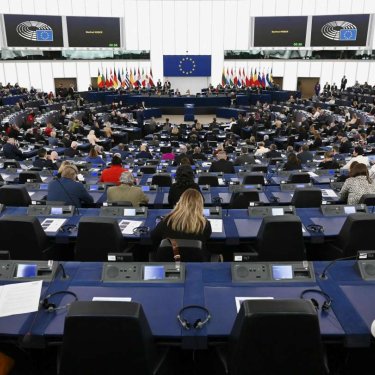The EMFA should make platforms "amplify reliable news media," RSF says

Reporters Without Borders (RSF) urges MEPs to include a requirement to increase the online prominence of news media offering reliability guarantees in the proposed European Media Freedom Act. The "amplification of reliable news media" provides a systemic solution to online disinformation, supports the sustainability of quality journalism and reinforces the capacities of online users.
When the European Parliament votes on the proposed EMFA in plenary session during the week of 2 October, RSF calls on MEPs to take advantage of this last round of parliamentary negotiation to include an obligation for online platforms to display reliable news media with "due prominence."
“Requiring platforms such as Facebook, Google and YouTube to adopt the algorithmic amplification of reliable sources of news and information not only constitutes a systemic solution to online disinformation but also supports media sustainability and reinforces the capacities of platform users. We therefore urge MEPs to include the 'amplification of reliable news media' in the EMFA."
The amplification approach complements the EMFA's existing mechanisms for moderating illegal content and combatting disinformation. Although necessary, the existing mechanisms cannot suffice because they intervene only after the fact, once the content is already online. Furthermore, disinformation is often not illegal or its illegality is very hard to establish. Determining legality and illegality, proving the absence of veracity and removing false content are all extremely complicated.
The best strategy for combatting disinformation is to amplify journalistic content that offers reliability guarantees. This is how democratic public spaces were traditionally constructed. Moving from a symptomatic treatment of disinformation (negative curation) to a systemic approach means adding an obligation to amplify sources of reliable news and information, by granting them greater visibility in search results and platform news feeds (positive curation).
The mechanisms by which platforms can adopt this algorithmic amplification already exist. The Journalism Trust Initiative (JTI) that RSF launched in 2021 enables platforms to identify trustworthy news sources by referring to an ISO-type standard that measures professional and ethical journalism, without any risk of individual platform bias.
Developed under the aegis of the European Committee for Standardisation (CEN), the JTI standard can be used by individual media outlets to certify their compliance with the most demanding journalistic standards. JTI certification is machine readable and can therefore be easily incorporated into platform recommendation systems. It is already mentioned in the EMFA as a one of the criteria that can be used to identify media that should be accorded specific protection against removal by platform moderators (article 17 and recital 33).
